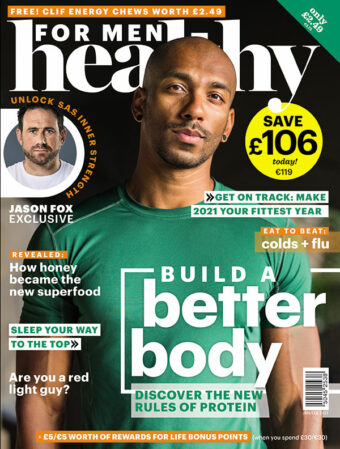
Being kind to others not only helps improve society, it’s also good for our mental health. Psychotherapist Malcolm Stern offers these five easy ways to embrace altruism
Many years ago, the Dalai Lama made a seemingly simple statement, which is truly profound. He said, ‘My religion is kindness.’ At this time in our evolution, we have a need to be kind both to ourselves and others. In my work with compassionate mental health, I’ve seen the effects that kindness can have. But if we are to be kind to others, we also need to be kind to ourselves. Our inner critic often has the capacity to undermine ourselves as the first step in undermining others.
Kindness is most effective when it becomes a practice. It’s like a muscle that, when used often, becomes stronger and more a part of who we are. In more than 30 years of working as a group psychotherapist, I have found my intuition has become easier to access, as it is constantly called on in groups. I rarely find my answers through logic or deep thinking. In the same way, if kindness becomes a part of our daily life, it flows that much easier and we begin to have more connection to it, without having to think too much. With this in mind, I’ve listed five ways to initiate and practise kindness.
1 Practise presence
When we see another in distress, our learned response, especially as men, is to try to fix them: to come up with a solution that will ease their pain. In the process of trying to assuage another’s pain, subconsciously, we are wanting to create good feeling, without necessarily allowing difficult feelings to have expression. My skill as a therapist is not to come up with brilliant answers in the face of difficult emotions, but rather to stay with the feelings, so they can be heard and honoured, before moving on. In the same way, you can be a true friend to another by not fixing or running away from heightened emotion. It’s a difficult but rewarding practice that’s worth exploring.
2 Be appreciative
This is such a simple, but obvious gift we can bring into our lives and especially into our intimate relationships. Without feeding our loved ones, relationships often stagnate and can become joyless. The essential thing here is to marry appreciation with authenticity. For example, when we notice our partner’s attractiveness, voice it to them. It feeds both them and us – but don’t appreciate them without meaning it. Instead make sure you feel what it is you’re saying.
3 Use your time wisely
One of the effects of the Covid-19 virus has been that many of us, myself included, have slowed down. What I was able to observe was that, after initial resistance, I began to enjoy the spaciousness and spend more time walking in nature. Ensure that, in addition to diarising your work, you also diarise empty spaces. Give yourself time to ‘be’ without an agenda. If you have children, give them the gift of your time and attention, rather than filling life with busyness.
4 Focus on the other person first
We often strive to get our point of view across to another when there is conflict. I used to repeat to myself many times the idea that, if I said what’s vital for me with enough volume and repetition, I would be better understood and get my way. But one of the lessons from Stephen Covey’s book, The 7 Habits of Highly Effective People, is to understand the other before you seek to be understood yourself.
5 Be generous
We always have the opportunity to be generous. It is easy to confuse this with a purely financial gesture. Real generosity is about tuning into another and sensing what you might contribute, that would lift their spirits. Notice the enjoyment that flows back to you when your gestures light up another’s face. We can be generous with our words and our hearts, as well as with our money.
About the expert
Malcolm Stern is a psychotherapist, co-founder of the alternative thinking platform, Alternatives, and co-presented the Channel 4 series on relationships, Made For Each Other. His latest book, Slay Your Dragons With Compassion – 10 Ways To Thrive Even When It Feels Impossible, is out now (Watkins, £12.99)
Photograph: Stocksy

You’ll find a wealth of expert advice on mental wellbeing in every issue of Healthy For Men in Holland & Barrett stores and online at hollandandbarrett.com

